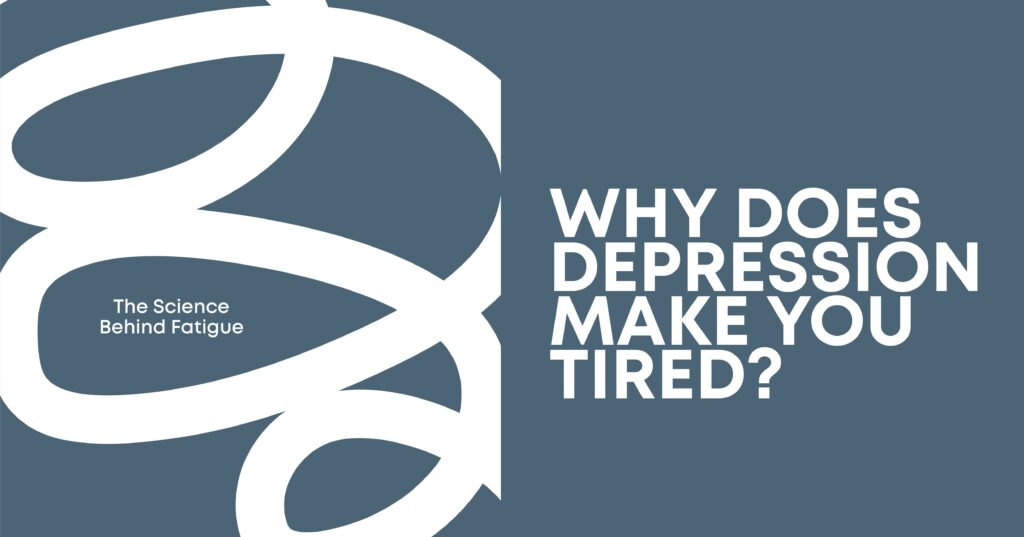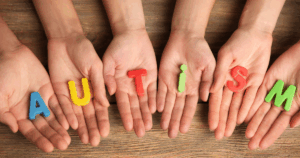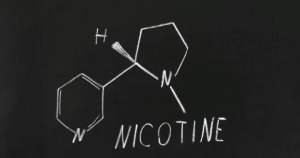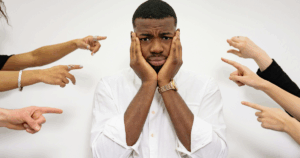We all get tired, it’s normal. But when this feeling lingers for too long, it could be a sign of something deeper.
In today’s fast-moving world, fatigue has become the new normal. But that doesn’t mean it should be ignored. Sometimes, it could be poor sleep. Other times, it’s linked to stress or diet. But when it sticks around, day after day, and starts interfering with how you live, it’s worth a closer look.
So, why does depression make you tired? Well, when your brain isn’t sending the right “feel-good” signals, energy levels plummet. Your motivation also goes away.
Studies back it up, too. Fatigue is a common complaint of individuals diagnosed with depression. This article breaks down the science, the “why,” and what you can do when it feels like your whole body (and mind) is exhausted.
Understanding the Link Between Depression and Fatigue.
Depression doesn’t always look the same for everyone. Some people feel it in waves. For others, it’s like a fog that never lifts. But a question that comes up often is: Can depression make you tired? The short answer is yes.
There was a medical article from 2018 that pointed out something striking. Over 90% of people with depression reported fatigue. Not just “a little sleepy,” but full-blown depression exhaustion.
The connection between depression and fatigue is still being studied. It’s a complex web that involves certain brain, poor sleep habits, and a general mental slowdown that all seem to feed off each other.
Mental Health Center of San Diego
Biological Factors That Contribute to Depression Exhaustion
The exhaustion that shows up with depression often has a biological cause. Sometimes, without realizing it, the very systems that keep us going, our hormones, brain signals, and neurotransmitters, start to go sideways. Let’s break that down.
Brain Chemistry
Neurotransmitters are basically chemical messengers in your brain. When they’re working, they keep your mood and alertness in check. But depression throws them off.
These include serotonin, dopamine, and norepinephrine. These hormones usually help us feel focused, happy, or motivated. When they’re out of sync, you’ll notice signs of exhaustion and sometimes outbursts of anger.
Hormones
These chemical regulators can shift during huge life changes, notably during puberty, pregnancy, and menopause. These sudden hormonal shifts can lead straight into a depressive episode. And with it, a kind of tiredness that doesn’t go away after a nap.
Sleep Disruption
We’ve all had nights of tossing and turning. But with depression, sleep issues are routine. Whether it’s insomnia (can’t sleep) or hypersomnia (can’t stop sleeping), both can leave you feeling like you barely slept at all.
Sleep apnea’s another common symptom. When it occurs, most people think they’re getting enough rest, but their body isn’t really getting the deep sleep it needs. And over time, it can cause major fatigue.
How Depression Affects Your Sleep and Why It Matters
Poor sleep messes with everything. But the relationship between depression and sleep is especially tangled.
Sleep is supposed to reset us. Physically, mentally, emotionally. But when depression walks in, sleep quality often walks out. Either you can’t fall asleep, or you’re waking up at 3 a.m. with a mind racing over things you didn’t even know you cared about.
That’s how depression and fatigue become a nasty cycle. You’re exhausted, so you try to sleep. But the sleep isn’t restful. So you wake up even more drained, and the depression deepens.
Signs That Fatigue May Be Related to Depression
Everyone gets tired. Long workdays, bad sleep, and stress are all triggers of fatigue. But sometimes, you might not be able to find a triggering factor. If you’re experiencing fatigue around the same time you feel depressed, it’s normal to wonder: Does depression make you tired, or is this something else?
Depression exhaustion looks a lot like regular fatigue. Here’s how you can start telling them apart:
Low Energy
| Effect | Description |
| Tiredness | You feel drained after a long day or a big task. A good night’s rest usually helps. |
| Depression | The energy is missing entirely. You can’t even bring yourself to start things you used to enjoy. |
Mood Factor
| Effect | Description |
| Tiredness | Low mood comes and goes. Sleep or a break can help lift it. |
| Depression | The sadness lingers. It spreads. Tasks feel meaningless. You stop looking forward to things |
Cognitive Functions
| Effect | Description |
| Tiredness | You might space out or forget something now and then. Usually short-term. |
| Depression | Memory, focus, and motivation all start sliding. Even reading a paragraph feels like too much. |
It’s not always easy to tell the difference, but if the fatigue sticks around and feels like it’s hollowing out your mind? That’s a red flag.
How to Manage Extreme Fatigue from Depression
Living with this kind of extreme fatigue, especially when it’s tied to depression, is tough. But there are small shifts that can help. It won’t all change overnight, but with a little consistency and kindness toward yourself, things can feel lighter. Here are things you can do.
Small Steps to Rebuild Energy
You can perform these small steps each day to get you closer to your goal of rebuilding your energy:
Medical Strategies
| Solution | Description |
| Medical examination | Sometimes it’s not just mental. Blood tests can help check for vitamin deficiencies, thyroid issues, or anything else messing with your energy. |
| Talking to a medical professional | This is important. A doctor or therapist can help figure out whether it’s depression exhaustion, something else, or a mix of things. They’ll guide you without judgment. |
Mental Health Center of San Diego
Increased Physical Activity
| Solution | Description |
| Exercising | We’re not talking full gym sessions right away. Just moving your body, or even stretching or walking, makes a difference. Over time, you’ll build up to more. |
| Outdoor activities | Nature helps. Even just sitting under a tree or walking by water can reset your brain a bit. Hiking, gardening, and casual sports are also all worth a try. |
Improving Sleep Quality
| Solution | Description |
| Eating earlier | Late meals don’t give your body enough time to wind down. Aim for dinner a couple of hours before bed to help your system settle. |
| Limiting certain foods | Caffeine and alcohol – both can mess up your rest big time. Cutting back (especially in the evening) can seriously improve your sleep. |
| Regular sleep schedule | This one takes effort, but it helps. Go to bed and wake up around the same time every day. Eventually, your body adjusts, and sleep becomes easier. |
Social Interactions
| Solution | Description |
| Social Connections | Depression can isolate you. And when you’re exhausted, reaching out feels even harder. But even a small chat with someone who gets it can bring relief. |
| Enjoyable activities | You don’t need to feel “productive.” Just do what feels nice. Things like painting, gaming, baking, and listening to old music. Fun matters more than we give it credit for. |
Does Exercise Help With Depression-Related Tiredness?
Honestly? Yes, and in a big way. It doesn’t have to mean heavy lifting or intense cardio. Any movement counts. Here’s how exercise helps fight off that heavy tiredness that comes with depression:
Health Benefits
| Effect | Description |
| Mood boost | Moving your body triggers endorphins. This is your brain’s natural “feel good” chemicals. They can clear out mental fog and even brighten your outlook. |
| Increased energy | Regular physical activity tells your brain to produce more dopamine. That’s the one responsible for motivation and alertness. |
| Improved brain function | The hippocampus (the part of your brain that helps regulate mood) gets stronger when you exercise. That means fewer mood dips and better focus. |
Emotional Benefits
| Effect | Description |
| Anxiety relief | Depression often comes bundled with anxiety. Exercise lets you release all that built-up tension in a way that’s healthy and grounding |
| Confidence booster | Feeling stronger or more in control of your body can remind you of what you’re capable of. |
| Increased social interactions | Joining a group class, walking with a friend, or dancing around others adds a social spark. And that helps chip away at loneliness and fatigue |
Feel Like You’re Running On Empty? The Mental Health Center of San Diego Can Help
If everything feels like too much, please know you’re not being dramatic. Fatigue that comes from depression is very real. It’s not laziness. It’s not weakness. And you’re not the only one feeling it.
When depression and fatigue tag-team your life, it’s hard to get through daily routines like work, school, and family, let alone try to feel better. That’s why places like the Mental Health Center of San Diego exist. To help.
We have professionals trained to recognize what you’re dealing with, even when you can’t quite put it into words. You’ll get support that makes sense, not judgment. And sometimes, that’s what makes the biggest difference.
If you’ve been pushing through exhaustion that never seems to ease up, maybe it’s time to contact the Mental Health Center of San Diego. Help is out there, and it’s okay to need it.
FAQs
Why does depression make you tired?
Because it messes with your brain chemicals, specifically the ones that affect energy, motivation, and mood. That imbalance is what leads to depression exhaustion.
Can depression cause extreme fatigue?
Absolutely. When your brain chemistry is off for a long time, and your sleep is disrupted too, it can lead to extreme depression fatigue that doesn’t go away on its own.
How do you fight depression exhaustion?
You start small. Adjust your sleep. Eat better. Move a little. And most importantly, talk to someone. Medical help makes a big difference.
Does exercise help with depression fatigue?
Yes, even a little movement helps. Exercise boosts mood, improves brain function, and supports better sleep, all of which reduce depression-related tiredness.
Mental Health Center of San Diego
What are the common symptoms of depression?
Low energy, poor sleep, persistent sadness, anxiety, emptiness, and yes, that lingering, heavy tiredness that just won’t quit.









